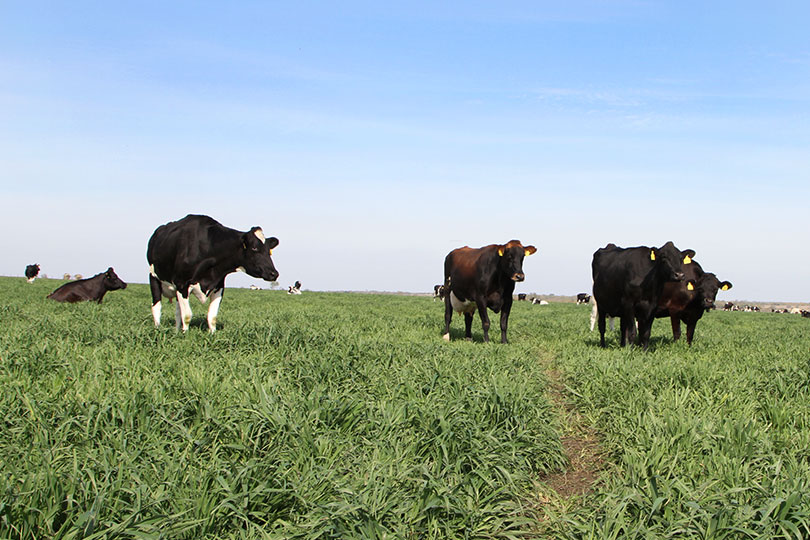By Jennifer Whitlock
Field Editor
Thanks to dairy farmers’ dedication and technological advancements, dairy farming is already more sustainable than ever.
But a partnership between Syngenta, the Nature Conservancy (TNC) and U.S. Dairy’s Net Zero Initiative hopes to bring a new “sustainability framework” to farms soon.
The program aims to develop a replicable program and toolset to scale best management practice adoption in feed and forage production and feed efficiency. A handout jointly distributed by the organizations during the 2021 Agri-Pulse Ag and Food Policy Summit noted the expected outcome is significant benefit in climate mitigation, soil health and water quality on dairy farms of all sizes.
“This partnership really aims to develop a program that we can replicate across the country—that we can scale resources for the adoption of best management practices in feed and forage production and feed efficiency,” Krysta Harden, president and CEO of the U.S. Dairy Export Council, said. “The plan is to launch in one or two sites across the U.S. later this year with a plan to really scale across the country over the next three years.”
Cross-sector collaboration between the three groups brings a variety of resources and expertise to farm-level management, beginning with feed.
“Syngenta brings a corn product, Enogen®, for dairy feed, but also agronomists and digital technology to provide advice to farmers about best practices for sustainability and then tools for data collection and reporting,” Syngenta Group CEO Erik Fyrwald said.
Enogen®, originally developed for the ethanol industry, was later found to provide improved starch and sugar availability and fiber digestibility when ensilaged for dairy feed. One result of improved digestibility is reduced methane emissions, making Enogen® an ideal choice when considering sustainability.
TNC will provide what Chief External Affairs Officer Lynn Scarlett called an interface with the broader conservation and environmental community.
“We are a voice amplifier, and we blend our technology, our science….and our partnerships to help broaden out both the audience and the knowledge,” she said.
Farmers complete a self-assessment to begin participation. Then, they work with program partners to decide what management practices work best on the farm. Farmers are expected to receive support in:
- soil health practices,
- nutrient and manure management,
- edge-of-field practices including riparian buffers and pollinator strips,
- alternative feed rations and feed additives,
- and conservation of marginal lands and nonproductive acres.
The work is founded on a theory of change that farmers will create positive environmental outcomes, because the value of participation in the program is greater than the cost of participation for the farmer, the groups said.
The framework aims to support the dairy industry’s Net Zero Initiative, an industry-wide effort to accelerate voluntary actions to reduce environmental impacts by making sustainable practices and technologies more accessible and affordable to all U.S. dairy farmers.
The Net Zero Initiative was formed in direct response to 2050 environmental stewardship goals set by the Innovation Center for U.S. Dairy.
Click here to view a handout on the sustainability framework.

